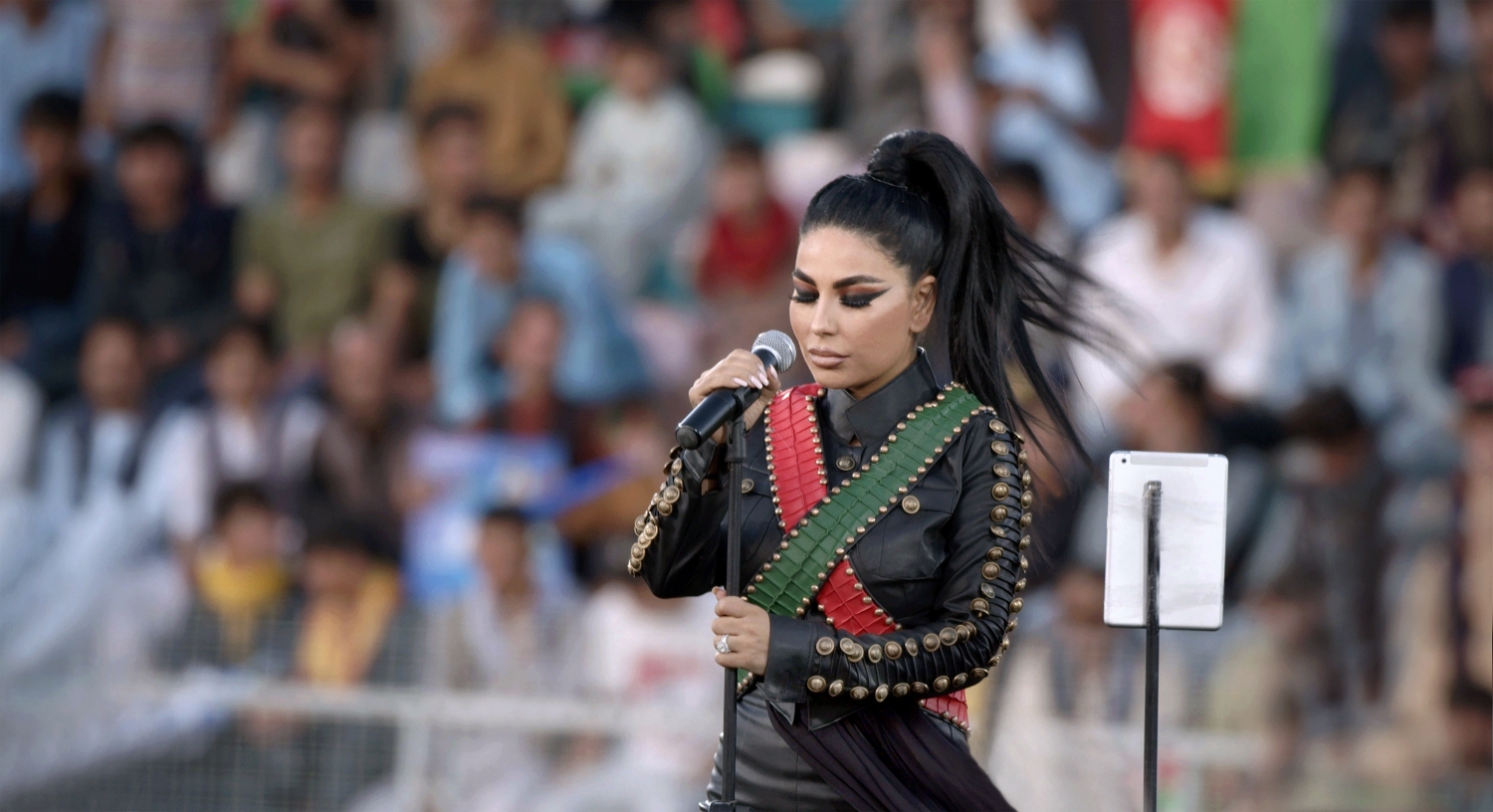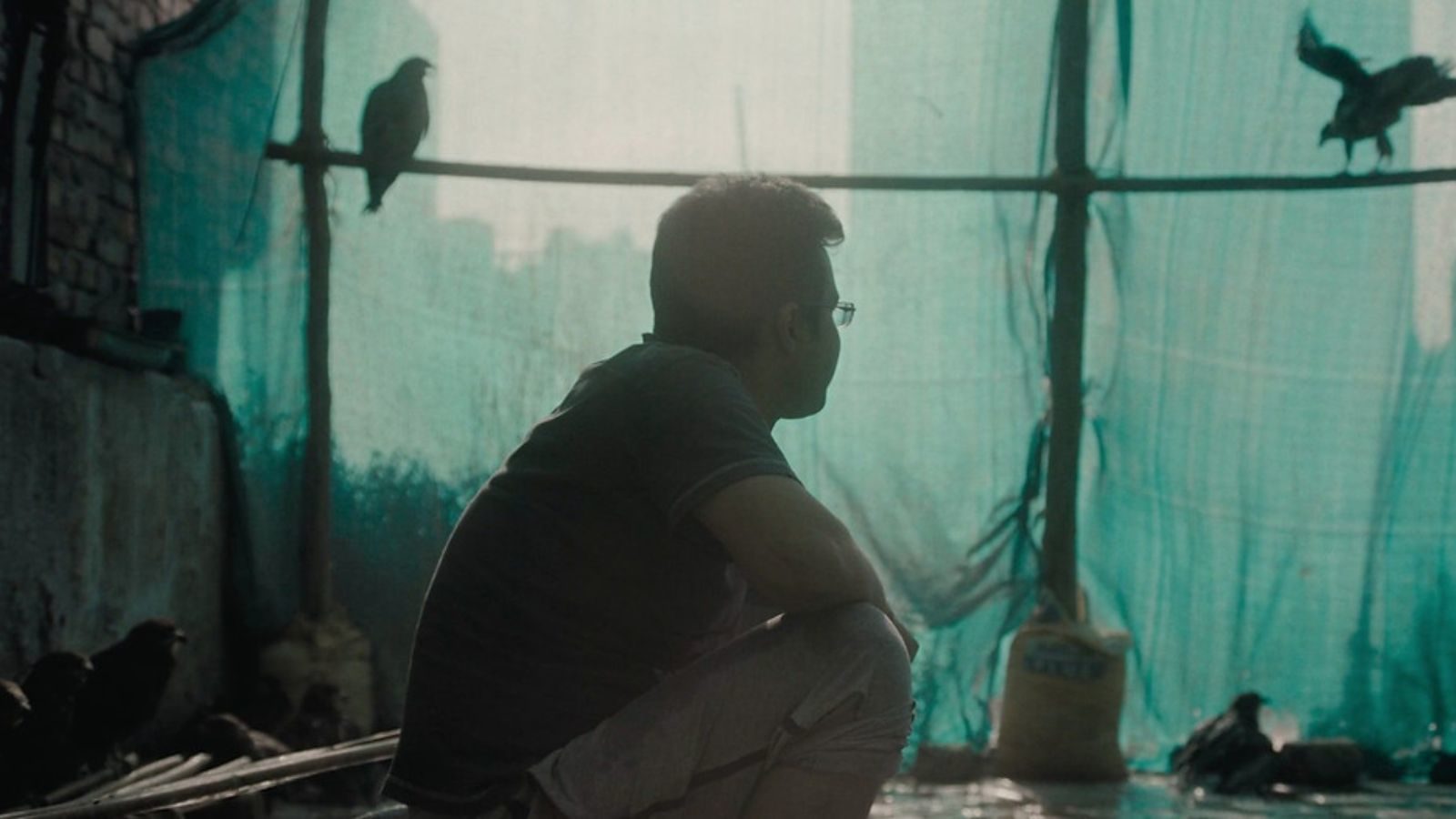And Still I Sing
(Canada, 90 min.)
Dir. Fazila Amiri
“Our national dance is joyful.” The refrain seems both hopeful and tragically ironic as 18-year-old Zahra Elham sings them alongside contestants on Afghan Star. As only one of two women on the 14th season of Afghanistan’s American Idol equivalent, Zahra and her fellow competitor Sadiqa Madadgar embody Afghanistan’s hope for change.
And Still I Sing follows Zahra and Sadiqa’s run on Afghan Star to create a stirring human rights portrait of women in contemporary Afghanistan. Director Fazila Amiri weaves the contestants’ story within similar trials that Afghan pop superstar Aryana Sayeed, a judge and mentor on Afghan Star, faces while taking the spotlight in a patriarchal society. The film finds in these three brave and talented women the story of a people fighting for progress. As the singers persevere amid vicious threats and attacks, they afford necessary optimism for a generation of Afghan women.
Afghan Star vs. Sing
Audiences in the doc crowd might wonder about the necessity of another portrait of the music competition show after Havana Marking’s Sundance prizewinner Afghan Star, but Amiri’s film benefits from its decidedly feminist perspective. Particularly as it hits theatres when stories of violence inflicted against women in Iran for something as seemingly innocuous as a loosened lock of hair, And Still I Sing is sure to stir passion within its audiences. The context is obviously different from the current headlines, but the film’s look at Afghanistan under the Taliban’s shadow nevertheless resonates when women like Zahra, Sadiqa, and Aryana risk everything to inspire others.
Even as Amiri documents the competition of Afghan Star a decade after Marking’s documentary, taking the stage remains dangerous. The Taliban deems singing sinful, and a dancing woman doubly so. Every choice they make is therefore heavily scrutinized. Viral videos and threatening phone calls rattle them, but they hold strong. The male contestants, however, are generally spared. Zahra and Sadiqa, who face additional pressure as members of the Hazara ethnic minority, make a bold statement by appearing on the show. As with Sayeed, singing is their passion. However, they know Afghan Star is more than that: it’s an opportunity to tell other girls that they have a voice.
The Shadow of the Taliban
And Still I Sing also distinguishes itself from Afghan Star as Zahra, Sadiqa, and Aryana perform amid political tensions that have mutated in the decade since. The threat of the Taliban is omnipresent. A walk through the women’s neighbourhood forces them to pass the site of a recent bombing. There’s an air of unease even amid the celebratory music.
Amiri observes how the growth of Zahra and Sadiqa, friends since childhood, reflects the mood in Afghanistan. Zahra recalls how Sadiqa never wore a hijab as a young girl. Now, Sadiqa ensures that every hair on her head is tucked in tight and pinned before taking the stage. At the same time, though, Sadiqa goes into the challenge alone with Zahra has her family’s support. Sadiqa is in the midst of her university studies ad her parents think that singing is a frivolous affair.
Moreover, Afghanistan’s impending 100th anniversary of independence from British rule brings mixed feelings. Aryana hopes to use her voice to unite the nation with a concert at Ghazi Stadium. She takes Amiri to the site of the Taliban’s heinous crimes. She tells how this very field was the stage for a woman’s execution in 1999. Amiri features excerpts of the chilling footage of the woman, shot point blank, amid the film’s archives. (Thankfully, she omits the most brutal frames.) These archival bits are chilling punctuation marks that stress the bravery the women take by putting themselves in the public eye. So too are the images Amiri finds in Kabul, such as a mural of Aryana defiled by graffiti. As Aryana readies for the concert, she and her fiancé/manager Hasib Sayed worry about threats of violence. They have to plan the concert through the right channels to ensure security, but without tipping off the Taliban. A nation’s hope is at stake.
Courageous Voices
And Still I Sing structures the story smartly and unexpectedly. Afghan Star is really just a hook for Amiri’s deeper study of women’s rights. The film climaxes not with the results, but with the new uncertainty of life under the Taliban. Audiences will know the singers’ results in the competition before the film’s final act. However, their fates are urgently in limbo as the USA announces its plans to withdraw troops and peace talks fumble.
Aryana becomes an outspoken advocate for the voices of women in the discussions. While the doc offers ample footage that showcases her beautiful singing, her voice is even stronger in the material that highlights her activism. She takes the stage before a group of women in the military and advocates that their courage demonstrates the strength of a united Afghanistan. However, just as images of her wearing a nude-coloured dress years ago threatened her ability to return to Afghanistan, championing women’s rights makes her a target. The film culminates with gripping images of the Taliban swiftly moving into Kabul and forcing many residents to flee.
And Still I Sing harnesses the courageousness of these women’s voices, though. The notes they hit soar higher than any threatening words they face. Amiri offers a refreshing counter-portrait to stories of the Middle East by focusing on both the hope and hardship that women like Zahra, Sadiqa, and Aryana face daily. The music is indeed joyous even if the images are tough.













